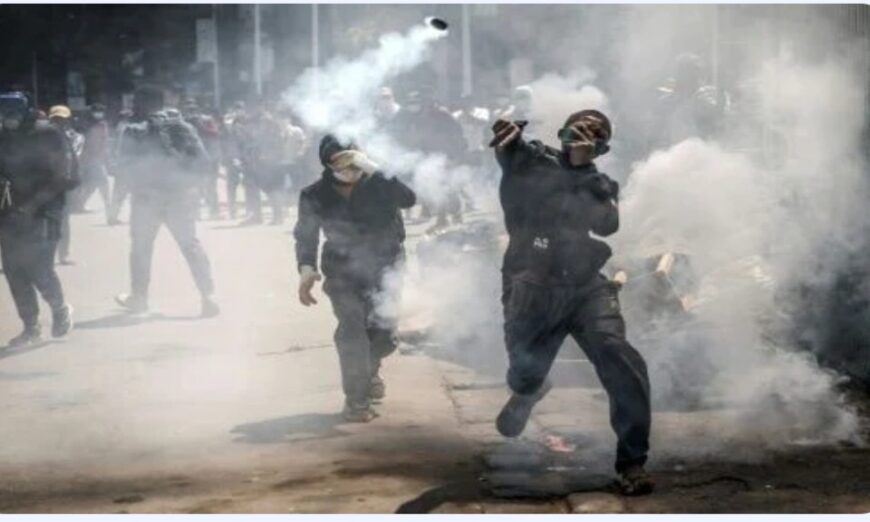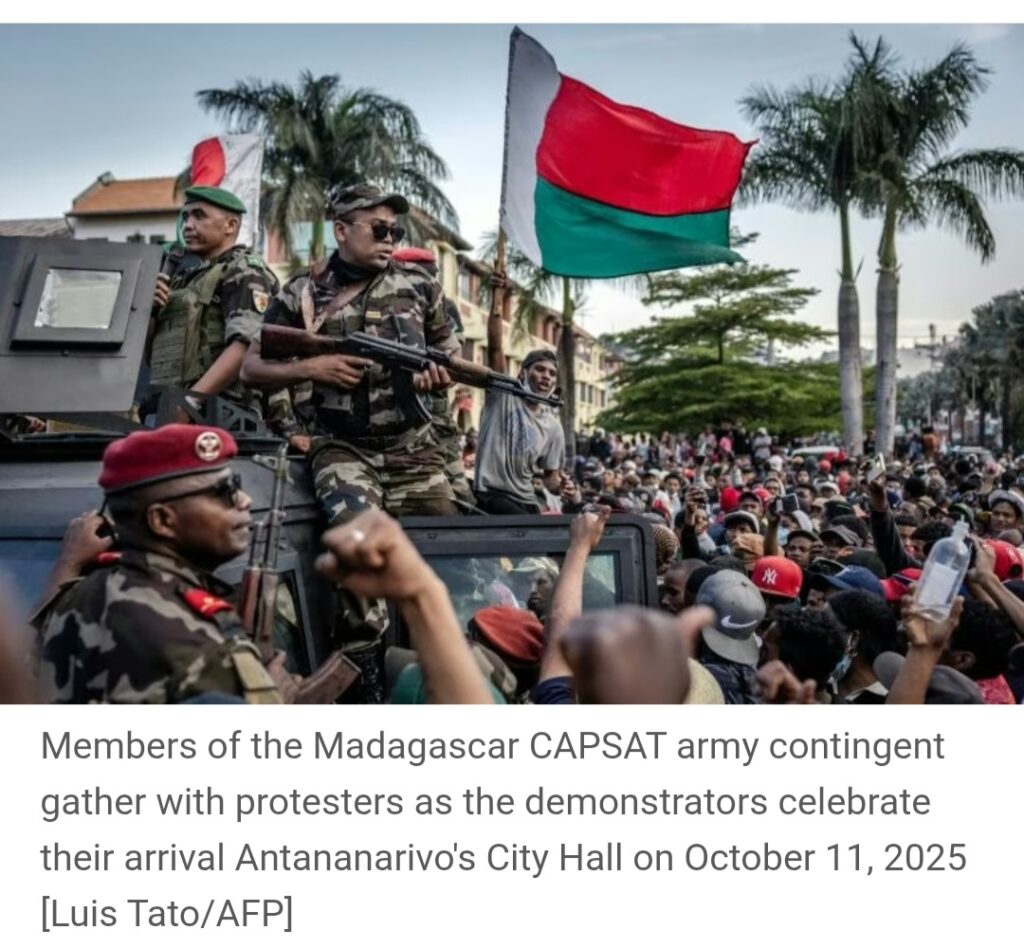
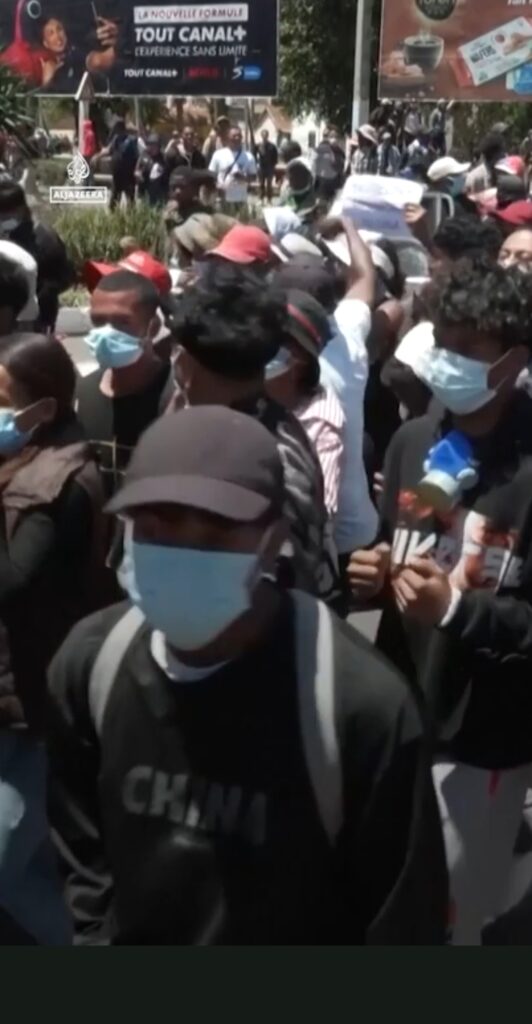
In Madagascar, some groups of soldiers have defied orders and joined thousands of anti-government protesters assembled in the capital, Antananarivo, against President Andry Rajoelina’s rule.
Soldiers joined in after police used stun grenades and tear gas on demonstrators.
The Gen Z protesters entered the capital’s May 13 Square yesterday for the first time in one of the biggest gatherings, which was sparked by anger over power and water shortages and evolved into a broader anti-government campaign.
The Malagasy army remains a mediator and constitutes the nation’s last line of defence. The United Nations said at least 22 people have been killed and 100 injured in the protests.
Madagascar has undergone frequent popular uprisings since gaining independence from France in 1960, including mass protests in 2009 that forced then-President Marc Ravalomanana from power as the military installed Rajoelina for his first term. He won re-election in 2018 and again in 2023.
After police used stun grenades and tear gas to try to disperse the demonstrators, soldiers arrived at the scene, where they were welcomed with cheers.
At a meeting at an army barracks on the outskirts of the city earlier, soldiers in the elite CAPSAT unit, which played a pivotal role in Rajoelina’s rise in 2009, issued a rare public call for solidarity as demonstrators demanded the president’s resignation.
“Let us join forces, military, gendarmes and police, and refuse to be paid to shoot our friends, our brothers and our sisters,” the soldiers at the base in the Soanierana district said in a video posted on social media.
They called on soldiers at the airport to “prevent all aircraft from taking off” and those in other camps to “refuse orders to shoot your friends”.
“Close the gates, and await our instructions,” they said. “Do not obey orders from your superiors. Point your weapons at those who order you to fire on your comrades in arms because they will not take care of our families if we die.”
A video broadcast by local media showed some soldiers leaving the barracks to escort protesters into May 13 Square, the scene of many political uprisings, which had been heavily guarded and off-limits during the unrest.
The youth-led protesters entered the capital’s May 13 Square on Saturday for the first time in one of the biggest gatherings since a protest movement inspired by what has become known as the Gen Z protests in Kenya and Nepal erupted on the Indian Ocean island on September 25.
A Capsat leader, Lylison René de Rolland, then addressed the cheering crowds in front of the city hall in 13 May Square, which protesters had previously been prevented from reaching. Capsat soldiers brought the current president, Andry Rajoelina, to power in a coup in 2009.
Speaking on state television on Saturday night, the prime minister, Ruphin Fortunat Zafisambo, said the government was “fully ready to listen and engage in dialogue with all factions – youth, unions or the military”.
Rajoelina appointed Zafisambo and a new defence and security minister after dissolving the previous government last week in response to the protests.
The soldiers’ intervention ratcheted up pressure on Rajoelina, who demonstrators have been demanding stand down. The youth-led protests broke out on 25 September, initially over water and electricity cuts. However, they quickly widened into calls for a complete overhaul of the political system, with the gen Z protesters not placated by Rajoelina firing his government last week.
Earlier in the day, police fired stun grenades and teargas to try to disperse the protesters. The recently appointed minister of the armed forces also called on troops to “remain calm”, at a press conference on Saturday.
“We call on our brothers who disagree with us to prioritise dialogue,” minister general Deramasinjaka Manantsoa Rakotoarivelo said. “The Malagasy army remains a mediator and constitutes the nation’s last line of defence.”
However, a Capsat leader accompanied by a large group of soldiers called on other military units to “refuse orders to shoot your friends”, in a video that was posted on social media before they left their barracks.
“Let us join forces, military, gendarmes and police, and refuse to be paid to shoot our friends, our brothers and our sisters,” he said, also calling on soldiers at the airport to “prevent all aircraft from taking off”.
“Close the gates and await our instructions,” he said. “Do not obey orders from your superiors. Point your weapons at those who order you to fire on your comrades-in-arms, because they will not take care of our families if we die.”
Nothing has been posted on the president’s social media accounts since Friday evening, when he was pictured meeting the heads of 10 of the country’s universities to discuss improving students’ lives.
An activist who attended Saturday’s demonstrations said she was concerned about the involvement of Capsat, due to their role in the 2009 coup that brought Rajoelina to power. She also criticised politicians who made brief addresses to the crowds in front of the city hall as “opportunists”.
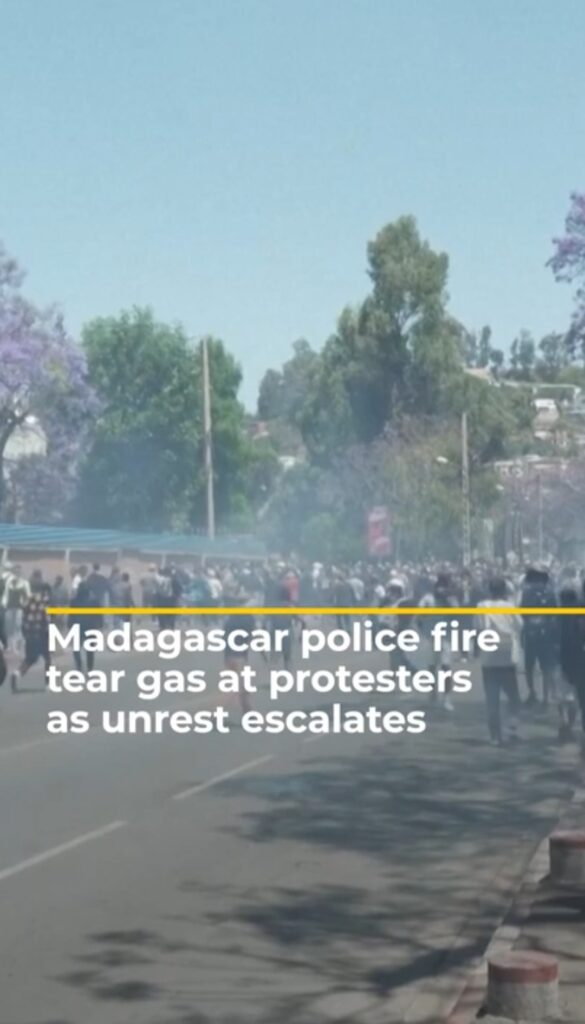
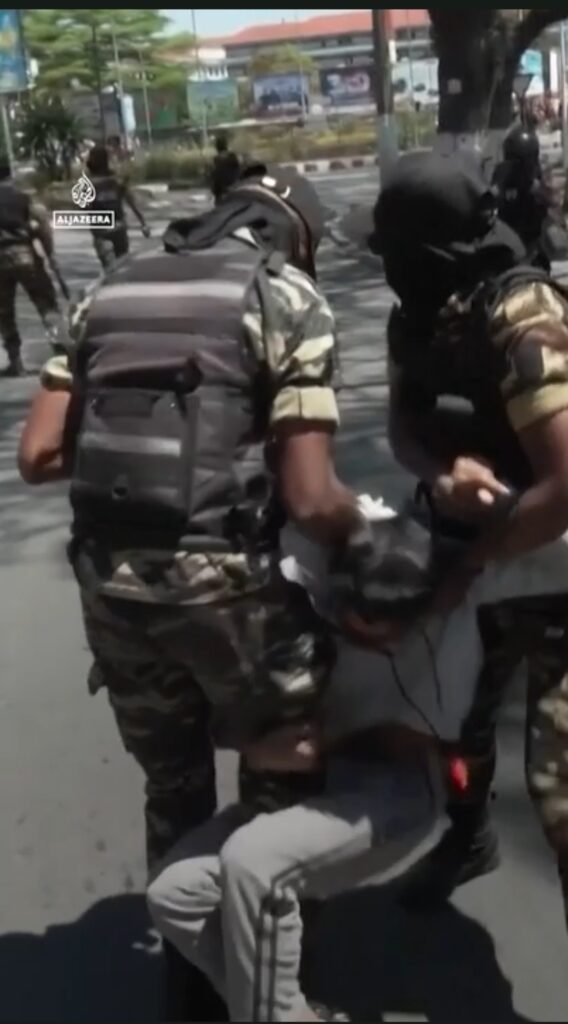
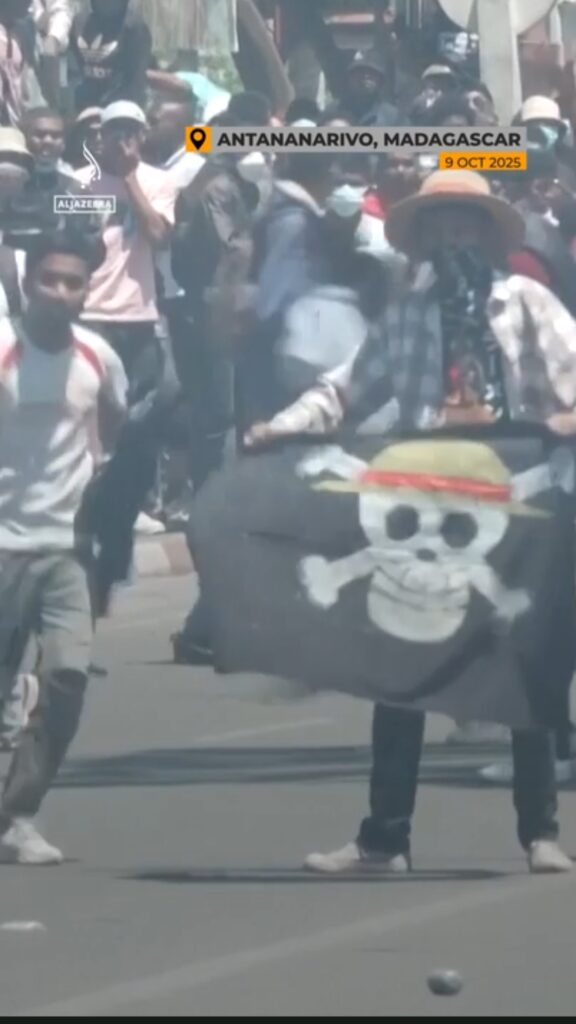
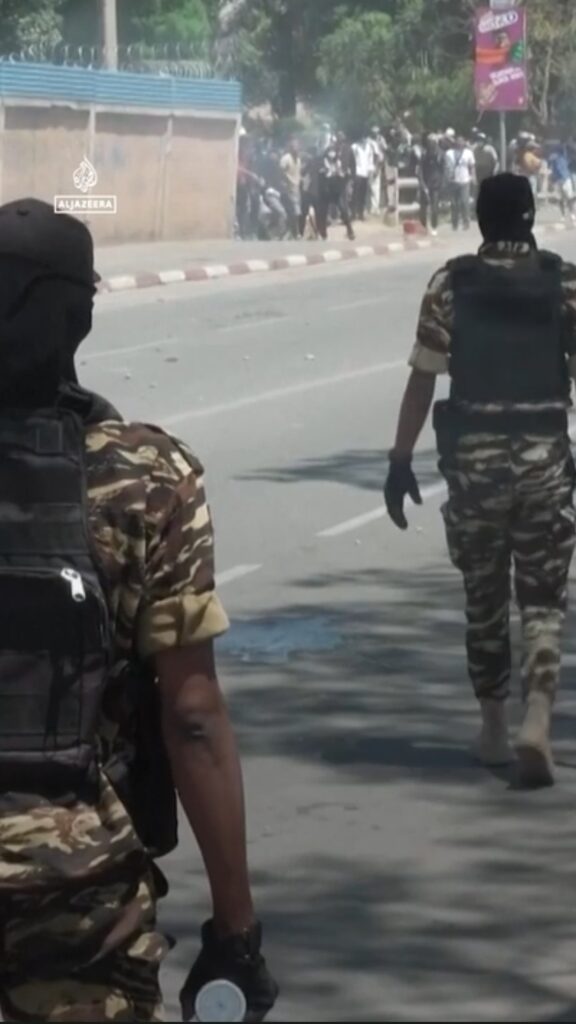
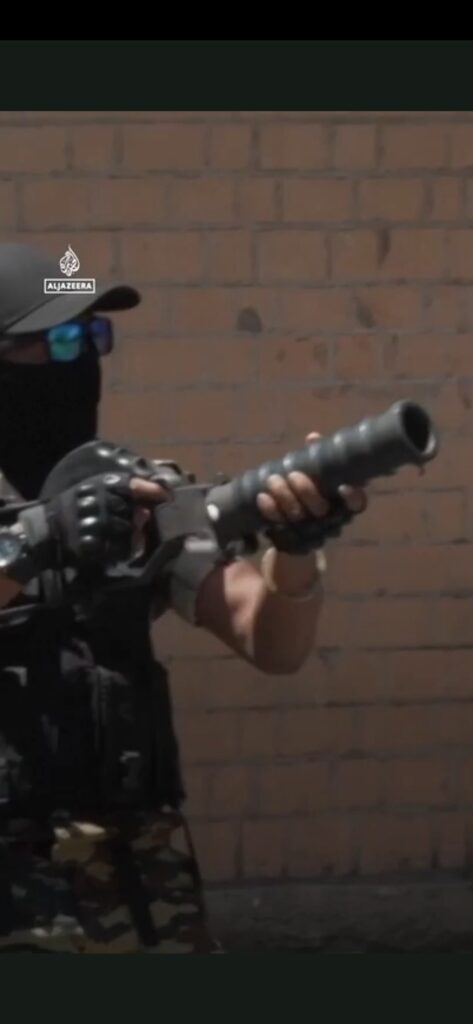
Madagascar, a nation of 30 million off Africa’s southeastern coast, has been plagued by political instability since Rajoelina first came to power in a 2009 coup.
Although he later won elections in 2018 and again in 2023, opposition leaders have accused him of suppressing dissent and manipulating the electoral process.
The latest protests erupted in late September after opposition groups alleged widespread irregularities in last year’s presidential election.
The movement has since grown, drawing broad support from unions, students, and civil society groups.
Security forces have so far avoided large-scale crackdowns, but Saturday’s defection by some military units marks a significant escalation.
Analysts warn that the standoff could deepen divisions within the army and further destabilise the country.
International observers, including the African Union and United Nations, have called for calm and urged all parties to respect constitutional order.

